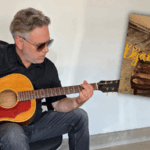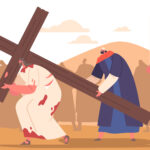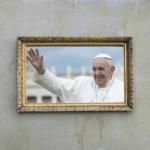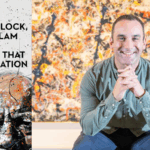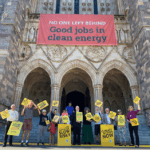Warning: This article discusses abuse, violence, and injustice. Reader discretion is advised. It also contains spoilers for both TV series Snowpiercer and Churails.
Snowpiercer is a four-season television series that is based on a 1982 French graphic novel Le Transperceneige, written by Jacques Lob and illustrated by Jean-Marc Rochette, and a subsequent 2013 movie directed by Bong Joon-Ho.
It is a post-apocalyptic story, set after scientists have made the entire world a frozen wasteland trying to combat the devastating results of climate change and global boiling. A 1,001 carriage train, powered by a type of perpetual motion, has been developed and built by an eccentric billionaire engineer, Mr Joseph Wilford with the pivotal assistance of Head Engineer Melanie Cavil. The last remnants of humanity have boarded the train in the hope of survival as they travel around the world on a continuous loop of tracks.
Rather than being a new utopia or a place of equality, the world onboard the train looks a lot like society today.
Snowpiercer spends the entire first season exploring and challenging class and social division. The rich, or first-class, occupy the front of the train and receive the best of everything. This includes whole carriages as sleeping quarters for a single person or family, gourmet food and extravagant dining, and a significant number of perks. Their wealth continues to provide them with power and influence over others, including the hospitality staff, who are the people who keep relationships across the entire train on an even keel.
Second-class are the white-collar workers like teachers and security staff. They have decent sized cabins and access to good, varied food.
Third-class are the essential workers who keep the train running. They are the maintenance crews, look after the animals, and attend the greenhouses where much of the food is grown. They have cobbled together spaces and rooms for homes, shops for various services, and pubs. There is also identifiable crime here, with the development of drugs and the illegal movement of goods. Despite their absolute necessity to keep everyone on board the train alive, third-class passengers are not valued in a way that reflects their essential nature.
The “tailies” are the group that fought through guards and boarded the very back of the train’s storage carriages, without tickets, as it was leaving. They have virtually nothing except what they boarded with, but have scrounged materials and built bunks to house everyone. They have no privacy. Their only opportunity for work is in sanitation. They are fed the same synthesised food and they dream of life further up the train with a modicum of decency.
The only way for the vast majority of tailies to do this, however, is to fight. They see violence as the only possible way, but they are out-gunned and out-resourced. Without supporters further up the train, from the other classes, they have little hope of escaping life in the tail end of the train.
The discrepancy between classes is very apparent in terms of punishment. The tailies will lose an arm, by being frozen off, which can lead to infection and death, just for stealing food while doing a menial job. A first-class passenger, on the other hand, can get away with literal murder. Even though the character is found guilty by the court, she is pardoned and allowed to continue living just as before, without consequence.
Justice is very different for the rich and the poor.
Churails is a ten episode Pakistani television series about a group of women, from different classes and backgrounds, who have experienced great hardship because of men. A wife and mother of three whose husband is having multiple affairs. A daughter whose father is trying to marry her off against her will. A lesbian couple who have endured endless abuse. A teenage girl who was physically and sexually assaulted by her older, arranged husband.
The women start a secret detective agency, under the guise of a fashion boutique, to track down and expose men who are committing adultery. With the proof that they get, their female clients have better chances of a good outcome if they go ahead with divorce proceedings. But the group ends up exposing far greater injustices with sex trafficking, medical malpractice, and more, at the highest levels of business, education, and politics.
Justice is very different for men and for women.
The series was actually banned in Pakistan. Despite the ban being lifted, restrictions to online streaming providers, effectively meant that Pakistani citizens would not be able to view Churails. Despite portraying realistic experiences in the life of so many women, it was perceived, ironically, to be offensive.
Churail is actually a derogatory Urdu slur for women. In Pakistani folklore, churails are witch-like creatures, bent-over women with backwards facing feet, so their footprints would lead you to her rather than away. Interestingly, they were originally women who died in childbirth or at the hands of men or in-laws. They would haunt and punish those who had killed them, protecting other women and the natural environment. They could be viewed as feminist heroes.
Both shows speak of systemic injustice. Snowpiercer highlights class inequality and structural, societal injustice. Churails exposes rampant sexism and the patriarchal systems that routinely degrade, disenfranchise, and abuse women.
While it can be cathartic to watch the baddies get their violent “just desserts”, is that really what Christ would be calling for in the real-life situations these shows expose?
These two shows, and countless others, display how seeking justice descends all too quickly into revenge and violence. The victim of violence and abuse becomes the perpetrator of the very same acts. A lawmaker, one who is meant to uphold the good principles of a healthy, fair society, becomes the murderer or instigator of another’s death. The oppressed actually warp into the oppressor.
Is this God’s sense of justice? Staying in a violent, oppressive, abusive, or dangerous situation is never a good solution. In the case of a marriage, the perpetrator has broken their marriage vows of loving, serving, protecting, and caring for their partner long before the victim leaves. In a war zone, staying may end in death. Life under an oppressive and restrictive regime results in the poorest never flourishing or contributing to their fullest potential.
But is engaging in the same behaviour towards the perpetrator what God would choose for them?
God calls Christians to something radically different, and, admittedly, very hard. Given the broken world humans live in, and the great outcry for justice, it is actually highly offensive. Jesus instructed his disciples, and consequently all who call themselves believers, to love their enemies and do good to those who harm them.
In Luke 6, Jesus has just chosen his twelve disciples and has started teaching in earnest. He heals those who have physical, mental, or spiritual ailments. His teaching is new and decidedly different to the teaching of the rabbis who had come before. No more eye for an eye, which in and of itself curtailed opportunities for revenge. A radical, love based, generous, and totally underserved grace is to be offered to enemies and perpetrators of harm.
By offering such grace, there might just be change. The perpetrator may just see the evil of their ways and turn from them. Shame at their behaviour being exposed may well cause a change of heart and move them to a place of doing good in the world.
It is not meant to be a way of ensuring that victims remain passive doormats.
If perpetrators do not change and turn from wrong doing, Jesus also warns of woes that will come upon them. Those who are rich, those who are well fed, those who laugh in their evil ways will face consequences. Even though they may not see justice on earth, they cannot escape the ultimate justice of the Creator, the One who made them. That ultimate justice is to be left to God, however. Humans don’t have the capacity to perfectly mete out just consequences.
Think of how far too many people have been incarcerated for crimes they did not commit. Far too many women don’t report abuse because they know nothing will happen. Far too few perpetrators of violence against women are ever convicted. Too many perpetrators of violence in families gain inappropriate access to children and end up harming or killing the child, or getting sole custody, just to get back at the partner for leaving. Too many war criminals escape any kind of repercussion for their actions. A convicted criminal can still be allowed to run for, and win, a presidential election of one of the wealthiest and heavily weaponised nations on the planet.

We do not live in a world that has the capacity for true fairness or justice.
This is what makes Jesus’ call to love enemies and do good to others so radical, but also, possibly the only way that can offer real change to a broken, fallen, and sinful world.
Dr Katherine Grocott
Snowpiercer is available to stream on Netflix and Churails is available to stream on SBS On Demand.
If this article brings up issues for you, help is available. The following support services can help.
- 1800RESPECT (Domestic Violence Counselling): 1800 737 732
- Men’s Referral Service: 1300 766 491
- Lifeline (24-hour crisis line): 131 114
- Relationships Australia: 1300 364 277







